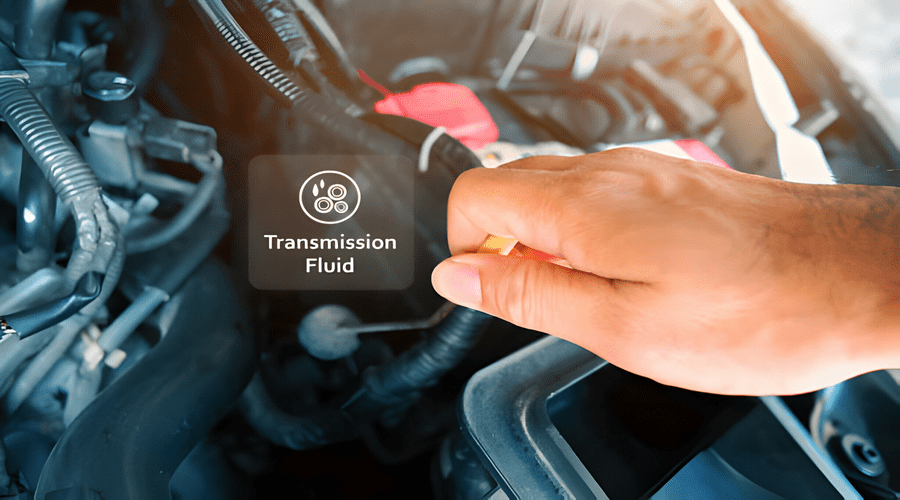Transmission fluid is an unsung hero in the world of automotive maintenance․ While many car owners focus on oil changes and tire rotations, the health of your transmission fluid can significantly impact your vehicle’s performance and longevity․ But have you ever wondered: how does transmission fluid get dirty? In this complete guide, we’re diving deep into the factors that contribute to the contamination of this vital fluid․
What is Transmission Fluid?
Before we explore how transmission fluid gets dirty, let’s first understand what it is․ Transmission fluid is a specialized lubricant used in automatic transmissions․ It serves several critical functions:
- Lubrication: It reduces friction between moving parts․
- Hydraulic Function: It transfers power from the engine to the transmission․
- Cooling: It helps dissipate heat generated during operation․
- Cleaning: It contains detergents that help keep the transmission clean․
How Does Transmission Fluid Get Contaminated?
Transmission fluid can become dirty for various reasons․ Below are the main culprits:
1․ Wear and Tear of Components
As with any mechanical system, transmission components can wear down over time․ This wear can create metal particles that find their way into the fluid․ Common sources of wear include:
- Clutches: When clutches engage and disengage, they can shed material․
- Gears: Grinding between gears can produce metallic shavings․
- Seals and Gaskets: Aged seals can break down, contributing debris․
2; Overheating
Transmission fluid is designed to operate within a specific temperature range․ When it overheats, it can break down and become contaminated․ Overheating can be caused by:
- Low Fluid Levels: Insufficient fluid leads to inadequate cooling․
- Heavy Towing: Exceeding your vehicle’s towing capacity can strain the transmission․
- Faulty Cooling Systems: If the transmission cooler fails, it can lead to overheating․
3․ Moisture Intrusion
Water and moisture can enter the transmission fluid through various means, including:
- Condensation: Humidity can cause moisture build-up inside the transmission․
- Leaks: A compromised seal or gasket can allow water to mix with the fluid․
- Worn Transmission Cases: Cracks in the case can be a gateway for moisture․
4․ Contaminants from External Sources
Transmission fluid can also become contaminated by external pollutants․ These can include:
- Dust and Dirt: Exposure to dust can lead to fine particles entering the fluid․
- Brake Fluid: If the transmission and braking systems are not sealed properly, brake fluid may leak into the transmission․
- Fuel Leakage: Fuel can contaminate the transmission fluid if fuel lines break or leak․
Signs of Dirty Transmission Fluid
So how can you tell if your transmission fluid is dirty? Here are some key indicators:
- Discoloration: Healthy transmission fluid is typically a bright red color․ If it appears brown or black, it’s time for a change․
- Burnt Smell: If the fluid smells burnt, it indicates overheating and degradation․
- Slipping Gears: Difficulty in shifting gears can be a sign of dirty fluid affecting performance․
Maintaining Clean Transmission Fluid
To keep your transmission fluid clean and your vehicle running smoothly, consider the following maintenance tips:
- Regular Fluid Changes: Follow your vehicle manufacturer’s recommendations for fluid changes․
- Check Fluid Levels: Regularly check the fluid level and top it off as needed․
- Inspect for Leaks: Monitor for leaks under your vehicle to catch issues early․
- Use Quality Fluid: Always use the recommended transmission fluid for your vehicle․
Transmission fluid is essential for your vehicle’s health, and understanding how it gets dirty is crucial for maintaining optimal performance․ By being aware of the causes of contamination and the signs of dirty fluid, you can take proactive steps to ensure your transmission remains in top condition․ Remember, a little preventive maintenance can go a long way in extending the life of your vehicle!
So, the next time you get your car serviced, don’t forget to ask about the condition of your transmission fluid․ Your vehicle will thank you for it!

